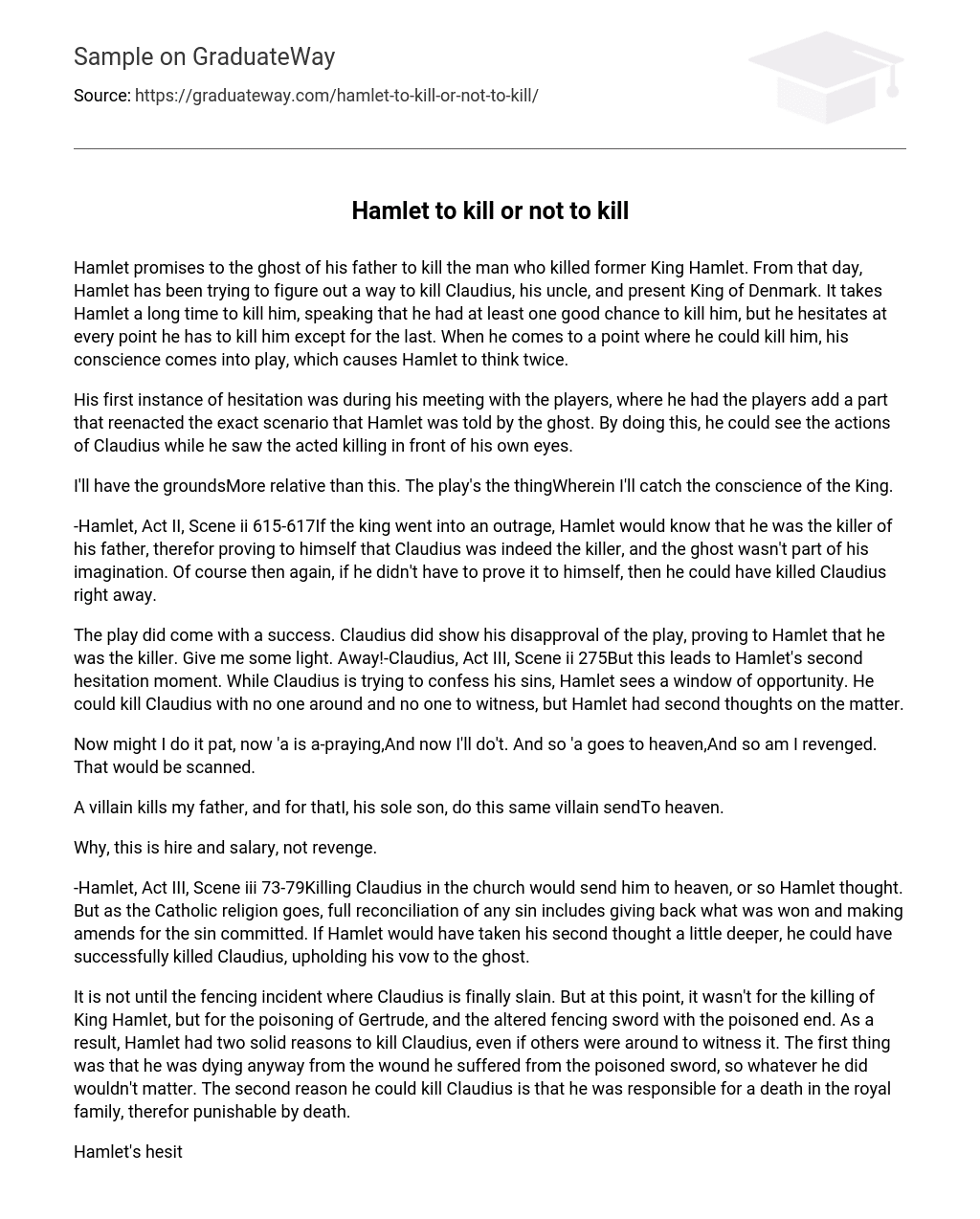Hamlet makes a solemn vow to the ghost of his deceased father to avenge his murder by killing the perpetrator, Claudius, his uncle and the current ruler of Denmark. Since that day, Hamlet has been strategizing on how to carry out this act of revenge. Despite having multiple opportunities to kill Claudius, Hamlet hesitates each time, except for the final opportunity. His conscience is the driving force behind his hesitation, causing him to question and contemplate his actions before taking any decisive steps.
During his meeting with the players, the director had them reenact the scenario that Hamlet was told by the ghost. This allowed him to observe Claudius’s reactions as he witnessed the staged killing firsthand.
“I will have evidence that is more convincing than this. The play is what will expose the King’s guilty conscience.”
-Hamlet, Act II, Scene ii 615-617: If the king became angry, Hamlet would be certain that he was responsible for his father’s death, thereby confirming Claudius as the murderer and validating the existence of the ghost. However, if Hamlet didn’t need this confirmation, he could have immediately killed Claudius.
The play was successful, with Claudius expressing his disapproval, thus confirming to Hamlet that Claudius was the killer. “Give me some light. Away!” – Claudius, Act III, Scene ii 275. However, this presents Hamlet with his second moment of hesitation. As Claudius attempts to confess his sins, Hamlet sees a chance to kill him without any witnesses. Despite this opportunity, Hamlet ultimately has doubts about taking action.
Now I can do it well, now he is praying, and now I will do it. And so he goes to heaven, and so am I avenged. That would be analyzed.
In my quest for vengeance, I send the villain who murdered my father to heaven, for I am his only son.
Why, this is payment for services rendered, not an act of retaliation.
-Hamlet, Act III, Scene iii 73-79
Killing Claudius in the church would result in him going to heaven, according to Hamlet’s belief. However, according to the Catholic religion, complete reconciliation of any sin requires returning what was gained and making amends for the committed sin. If Hamlet had explored his second thought further, he could have effectively fulfilled his vow to the ghost by killing Claudius.
Claudius’ slaying does not occur until the fencing incident. However, it is not his killing of King Hamlet that leads to his demise, but rather the poisoning of Gertrude and the alteration of the fencing sword with a poisoned end. Consequently, Hamlet has two compelling motives to kill Claudius, regardless of any witnesses present. Firstly, he is already fatally wounded from the poisoned sword, rendering his actions inconsequential. Secondly, Claudius is accountable for a death within the royal family, which warrants capital punishment.
Despite the possibility of sparing at least six, and potentially even seven lives, Hamlet’s decision to delay and wait for the right moment to avenge his father’s death resulted in the loss of multiple lives. This hesitation carried a significant cost as seven individuals who were not involved in King Hamlet’s demise lost their lives. The consequences highlight the importance of acting decisively and swiftly.





